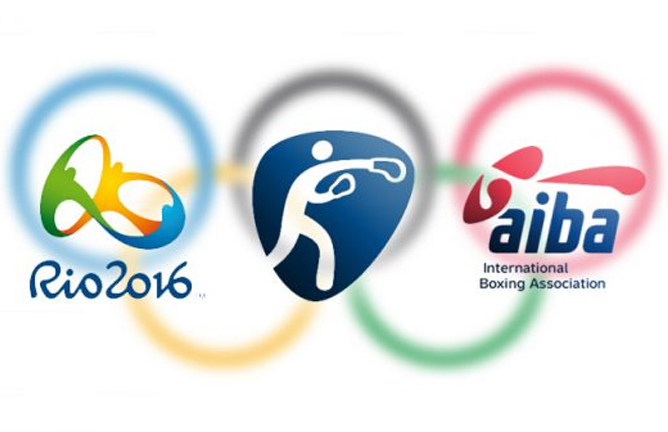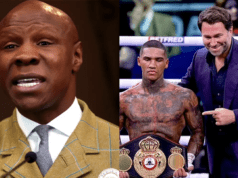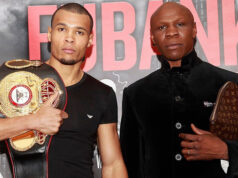The AIBA Special Investigation Committee (SIC), consisting of experts from its Refereeing and Judging (R&J), Technical and Rules, as well as Disciplinary Commissions, has concluded its investigation into the practices and procedures of officials during the Rio 2016 Olympic Boxing Tournament. The SIC’s recommendations for improvements to R&J structure for the Tokyo 2020 Cycle are already being put in place.
The investigation ordered by AIBA President Dr Ching-Kuo Wu after a small number of decisions at Rio 2016 came under scrutiny and serious allegations were made against AIBA officials, has been concluded. Starting in mid-September, the full investigation took place in two phases across four months, with over 50 interviews conducted during that time.
The key findings indicate that, due to a lack of proper procedural norms, a concentration of decision-making power and the assigning of roles assumed by former senior management that had a detrimental impact on in-competition best practice. Whilst the Special Investigation found no active interference in the results, AIBA moved quickly to identify those involved and took the necessary steps to ensure its officials will no longer become scapegoats for close decisions which are an inherent aspect of the sport.
“AIBA defends the integrity of its expert R&Js who operate in difficult, subjective circumstances, but we have shown that we are also not afraid of making difficult decisions for the good of boxing. An unwelcome axis of influence and sole decision-making had been created and used by former Senior Management that led to a lack of due process being carried out. We moved immediately to re-empower our commissions and use their expertise in order to decentralise the decision-making and re-establish our procedures.
Whilst there is no evidence that this had a direct influence on results in Rio, if best practice is not followed 100% of the time by our officials and R&Js, that is unacceptable. The SIC have conducted a thorough investigation and many of their recommendations, including the disbanding of the 5-star R&J structure and placing control of the FOP back in the hands of the Tournament Supervisor, have already been put into place. These actions will ensure even greater consistency and transparency in our officiating as we head into the new Olympic Cycle.” said AIBA President Dr Ching-Kuo Wu.
Potentially damaging influences removed
The report shows that the actions AIBA has taken since the Rio 2016 Olympic Boxing Tournament, and the organisation’s current positive steps, are justified. Following the removal of these mechanisms that threatened the integrity of the organisation, the SIC also found unprofessional relationships within AIBA had created an atmosphere of collusion between senior management and the Five-Star R&Js that undermined the organisation and had a negative impact on its operating efficiency.
Recommendations already being implemented
The overriding goal of the SIC investigation, to provide recommendations that will help create a reorganised structure for R&Js and ensure the correct safeguards are in place, have already been realised. The Five-star R&J system has been disbanded with the unanimous agreement of the R&J Commission. Improvements to the in-competition administration of officials have already been trialled and approved for AOB tournaments in 2017 after being successfully trial run at the Youth World Championships in St Petersburg in November 2016.
The R&J Draw Commission has been removed and an automated Swiss Timing system will assign officials to matches, with all five Judges’ scorecards now used to determine the winner of a bout. Changes to the Field of Play will now give R&Js the best possible environment in which to operate and be evaluated, while the Executive Director, or any AIBA staff member, will no longer have any role in the FOP. There is no evidence that the reallocation of medal rankings is required for Rio 2016, but AIBA will be researching the feasibility of processes for the appeal of decisions in the future.
Education and training
In order to move forward, and to prevent AIBA becoming a scapegoat for unpopular decisions in the future, a broad education programme will be undertaken involving boxers, coaches, officials and fans alike, to instil a greater understanding of scoring and give a strong reminder of the importance of sportsmanship, respect and fair play values. It is essential that the entire boxing community is more in tune with the parameters within which the R&Js work, in order to better understand their decisions. The subjectivity of scoring is part of what makes the sport unique, and the nature of the contest means that strong opinions are formed by teams and fans, but that should not impact negatively on the integrity of the officials.
Reintegration of Rio 2016 officials
AIBA reiterates that while the decision to stand down all 36 R&Js that were officiating at Rio 2016 was necessary until the SIC investigation had been concluded, as a preventive measure, it was in no way an indication of their wrongdoing. The reintegration process of those officials into the new-look R&J structure will now begin on a case by case basis, and an extensive series of courses and workshops is being implemented to grow and enhance the pool of first-class officials around the world.
AIBA has taken important steps for the sake of boxing and is determined to learn from the past in order to build positive, enduring legacies for the sport. AIBA Ethics Commission Chair has received the mandate to analyse recent issues and the general organisation of the Association, with the objective to propose operational and governance reforms to the President and the Executive Committee. The organisation stands more united than ever as witnessed in the last Extraordinary Congress held in Montreux, but will continue to tackle any incident of impropriety that dishonours it or the sport with the utmost severity, and repeats its commitment to ensuring the values of fair play and transparency are upheld at all times by the entire AIBA Family, its staff and stakeholders.











